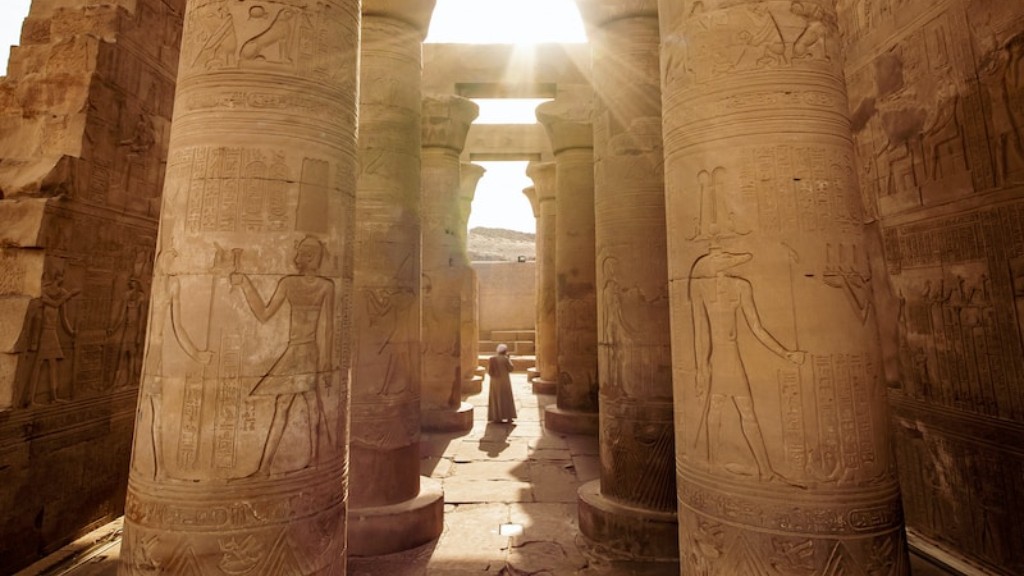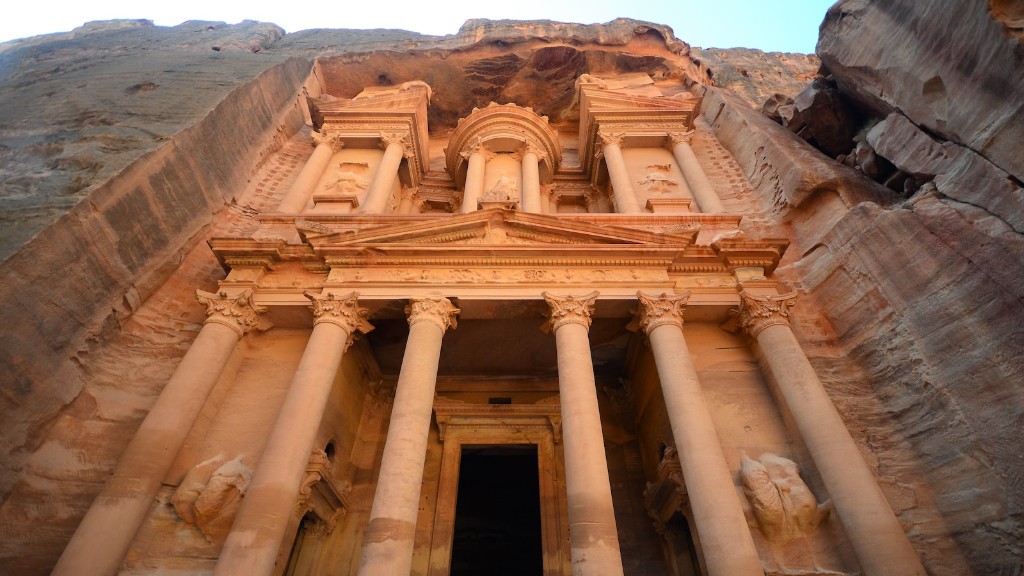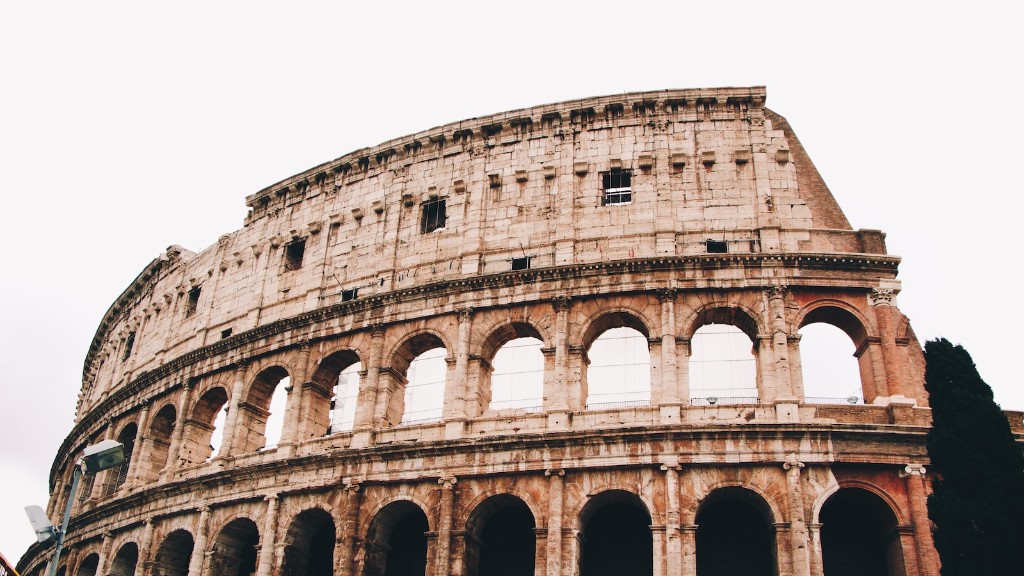Both Ancient Greece and Ancient Egypt have a long and legendary history, with both cultures influencing each other. Both societies shared similar religious beliefs, political structures, and architecture. Ancient Greece and Ancient Egypt also shared certain cultural similarities such as mythology, gods, and sport. Moreover, both civilizations still capture our fascination today.
The religion and beliefs of both Ancient Egypt and Ancient Greece were extremely important and played a fundamental role in their societies. Ancient Egyptians share a common elitist idea that their rulers were descended from gods. The power and authority of the rulers was seen as granted by the gods, giving them legitimacy in the eyes of their people. Ancient Greeks believed in a pantheon of gods and goddesses, and their religion was closely linked to their culture and literature. Moreover, their philosophies, morals, and values were all connected to their religion.
Politically speaking, Ancient Egypt was ruled by a unified central government and a monarchy. The Pharaoh was the ruler of Egypt and held a great amount of power. In Ancient Greece, there was no single unified government like in Egypt, but a number of different city-states, each with their own laws, customs, and rulers. The two cultures also shared similar educational philosophies. Teaching was seen as an educational and moral obligation and was highly valued by both societies.
Architecture was also an aspect that was shared between Ancient Egypt and Ancient Greece, and these two groups were renowned for their use of limestone and marble for their construction of the monuments. The two societies also shared certain architectural similarities such as columns, obelisks, and steles.
Mythologies were extremely important in both Ancient Greece and Ancient Egypt, with gods and goddesses playing dominant roles in the tales. Ancient Greek mythology was composed of 12 major gods and goddesses, including Poseidon, Zeus, Hera, Athena and Aphrodite. These gods were believed to control the forces of nature. Ancient Egyptian mythology contained a pantheon of gods and goddesses as well. Among the most prominent figures in this pantheon are Horus, Osiris, Isis, Thoth, and Ra.
Sports were a popular pastime in both Ancient Egypt and Ancient Greece, with similar sports being enjoyed in both societies. Gymnastics and wrestling were two of the most popular sports in the societies of both cultures, and they also played a symbolic role in many religious rituals. Both Ancient Egypt and Ancient Greece also enjoyed ball games, sailing, rowing, and archery. These sports were seen as rituals and symbols of power.
The impact of the two cultures, Ancient Greece and Ancient Egypt, still resonates today. From politics, to architecture, to sports, to religion, and mythology, these two ancient societies have a lot to offer.
Influence in Mathematics
Both Ancient Greece and Ancient Egypt developed and advanced mathematics. Math was important in Ancient Egypt for surveyors and architects to help build monuments and buildings. Notable advancements were made in geometry, algebra, and trigonometry, which allowed for the development of impressive structures and monuments like the Great Pyramid of Giza. Ancient Greece also made advancements in mathematics, most notably with the development of the idea of proof in geometry. Mathematical works from the Ancient Greeks are still studied today, including works from Euclid’s Elements, also known as the first great work of mathematics.
Influence in Literature and Arts
Both Ancient Egypt and Ancient Greece had a strong impact on literature and art, particularly on their respective societies. Both societies had a deep appreciation for arts and literature, which served to educate, to inspire, and to entertain. Ancient Egyptian literature was highly revered for its morality and religious values. Archaeological finds such as The Story of Sinuhe and The Tale of the Shipwrecked Sailor have become integral texts in the traditions of Ancient Egypt. Ancient Greeks were also renowned for their literature, with works from famous writers such as Homer, Herodotus, Sophocles, and Euripides still around today. Both societies also saw art as an important part of their culture, with the Ancient Egyptians creating sculptures of gods, pharaohs, and other figures, and the Ancient Greeks creating sculptures of gods, heroes, and mythical creatures.
Influence in Language and Medicine
The legacy of both Greece and Egypt can also be found in the languages they left behind. Ancient Greek was the language of literature and science, and it is still used today in many academic disciplines. Ancient Egyptian hieroglyphs are also still around, used for deciphering the ancient culture. Ancient Egyptians also made advances in medicine, with the Edwin Smith Papyrus being perhaps one of the most famous works. This is an ancient Egyptian medical text that was used to diagnose, treat, and even perform surgeries. Ancient Greece also made important contributions to medical knowledge. The Hippocratic Corpus, for example, is a collection of sixty medical works that were written by Hippocrates and his students.
Influence in Science and Technology
Ancient Egypt and Ancient Greece have both had a profound influence on modern science and technology. Ancient Egyptians made important contributions to mathematics, astronomy, and engineering, developing sophisticated structures like the pyramids and the Great Sphinx. Ancient Greeks were also considered pioneers in the field of science, with philosophers such as Plato and Aristotle making major advancements in physics, mathematics, and biology. Even today, Ancient Greek thought and belief can be seen in our scientific knowledge.


